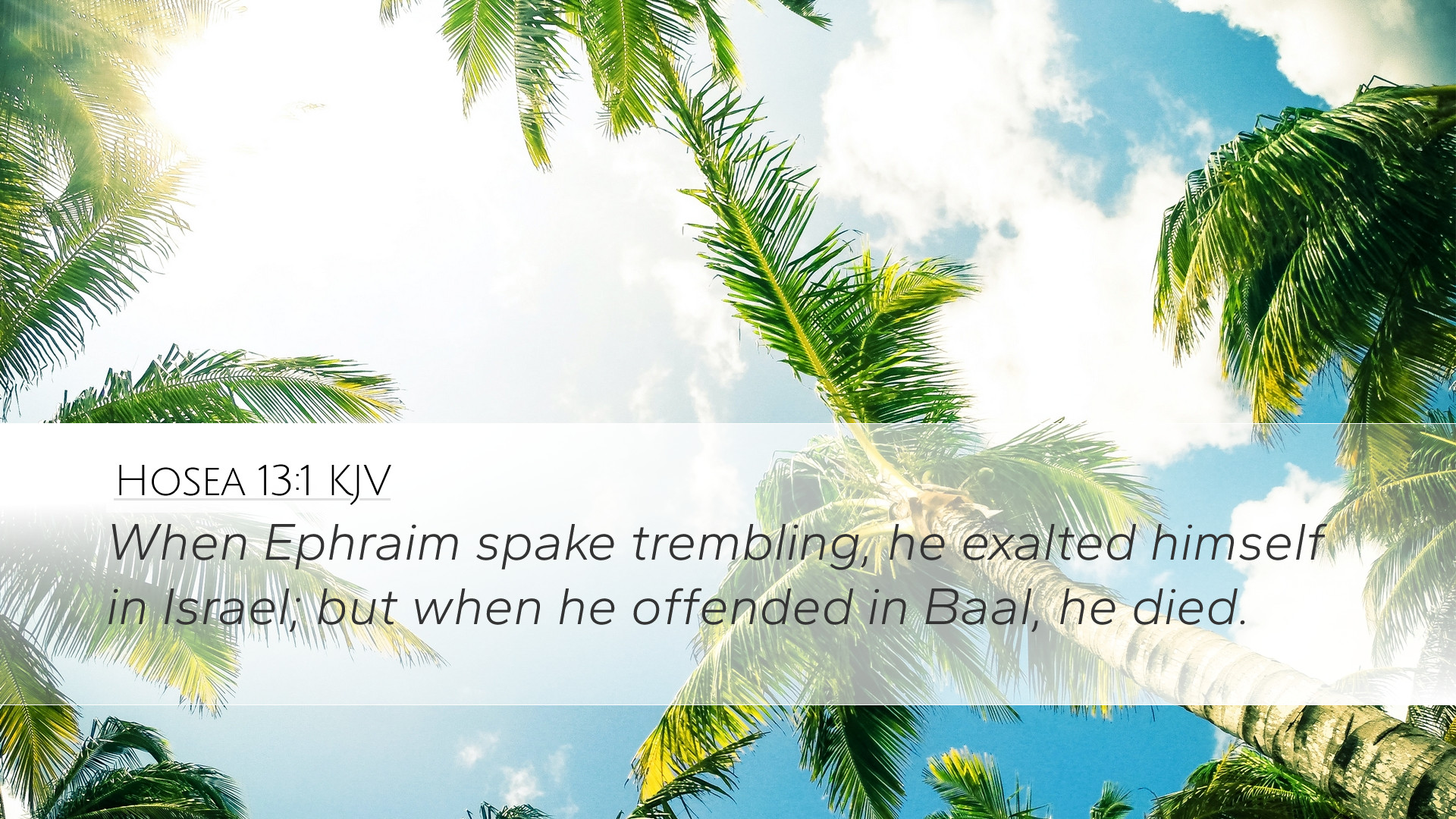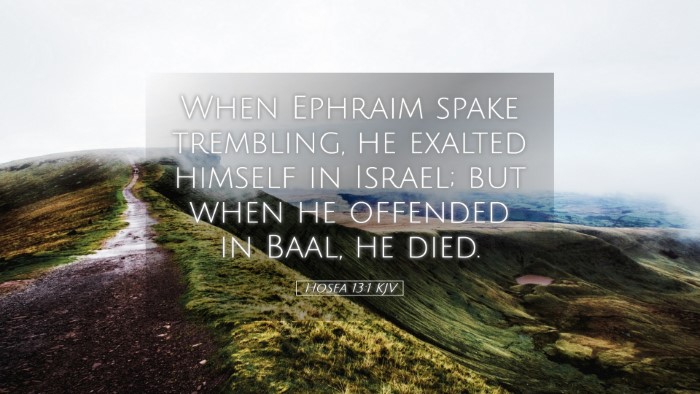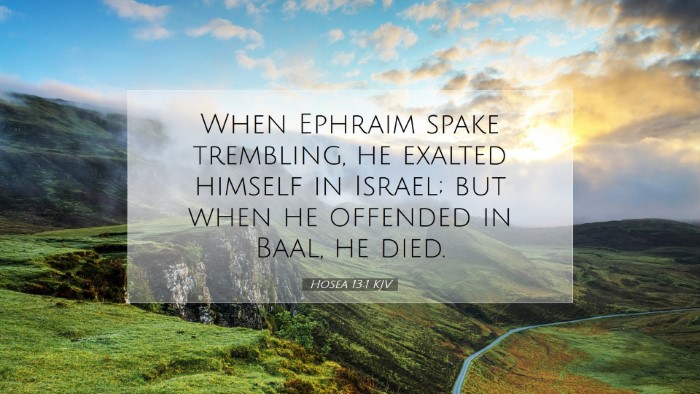Old Testament
Genesis Exodus Leviticus Numbers Deuteronomy Joshua Judges Ruth 1 Samuel 2 Samuel 1 Kings 2 Kings 1 Chronicles 2 Chronicles Ezra Nehemiah Esther Job Psalms Proverbs Ecclesiastes Song of Solomon Isaiah Jeremiah Lamentations Ezekiel Daniel Hosea Joel Amos Obadiah Jonah Micah Nahum Habakkuk Zephaniah Haggai Zechariah MalachiHosea 13:1
Hosea 13:1 KJV
When Ephraim spake trembling, he exalted himself in Israel; but when he offended in Baal, he died.
Hosea 13:1 Bible Commentary
Commentary on Hosea 13:1
Verse: Hosea 13:1 - "When Ephraim spoke, there was trembling; he exalted himself in Israel; but when he offended in Baal, he died."
Introduction
The book of Hosea stands as a poignant reminder of God's covenant love juxtaposed against the backdrop of Israel's unfaithfulness. In Hosea 13:1, the prophet reflects upon the volatile history of Ephraim, representative of the Northern Kingdom of Israel, and their fall into idolatry, particularly in their worship of Baal.
Contextual Understanding
In understanding this verse, it is essential to consider the broader historical and theological context of Hosea. Ephraim, the dominant tribe of the Northern Kingdom, once enjoyed a position of power and influence. However, this power, which initially evoked awe and respect among the nations, ultimately succumbed to idolatry and moral decay.
Insights from Public Domain Commentaries
Matthew Henry's Commentary
Matthew Henry reflects on the dignity of Ephraim prior to its downfall. He notes that Ephraim had a powerful voice in Israel's affairs, and when they spoke, it led to national consequences: "There was trembling." This indicates that Ephraim held a significant position, likened to that of a leader whose words carried weight. However, Henry underscores that this power turned to tragedy as they forsook God for Baal worship, which led to their spiritual demise and national collapse.
Albert Barnes' Notes
Albert Barnes emphasizes the transition from admiration to despair as he examines the phrase "when he offended in Baal, he died." Barnes elucidates that this signifies not merely a physical death but a spiritual death—an alienation from the covenant community and the loss of God's favor. The connection between idolatry and death is profound; it reminds readers of the fatal consequences of turning away from God. Barnes further argues that the hubris associated with generosity and authority is ultimately folly, leading to destruction.
Adam Clarke's Commentary
Adam Clarke offers an interesting perspective on the phrase "When Ephraim spoke." He asserts that Ephraim's former glory is irrefutable, but their downfall stemmed from their pride. Clarke notes that the term 'died' is indicative of the inevitable decline following their sin of idolatry. He references the cultural and religious syncretism that plagued Israel during this period, leading them to worship Baal alongside Yahweh, which resulted in the forfeiture of their spiritual vitality.
Theological Reflections
This verse invites a deep theological reflection on the nature of authority and responsibility. Ephraim's initial strength became a curse when they turned away from God towards idolatry. Their tragic fall serves as a warning to contemporary believers about the dangers of allowing pride to lead to spiritual compromise.
Application for Today’s Believers
The lessons from Hosea 13:1 resonate today, encapsulating a timeless message about fidelity to God. For pastors and church leaders, the text emphasizes the need for vigilance in teaching against the seductive allure of cultural idols that may infiltrate the church. Further, for students and theologians, it serves as a clarion call to theological integrity and the necessity of aligning one's life and doctrine with the truth of Scripture.
Conclusion
Hosea 13:1 is a profound reminder of the duality of power and humility in the life of a believer. Ephraim's exaltation led to their downfall—alluding to the necessity of remaining humble and dependent on God. The profound insights from the commentaries remind us that our actions have consequences, and abandoning our first love, God, leads not only to death but to a desolation of spiritual vitality. May we learn from Ephraim’s error and commit ourselves to steadfast faith in God's covenant love.


